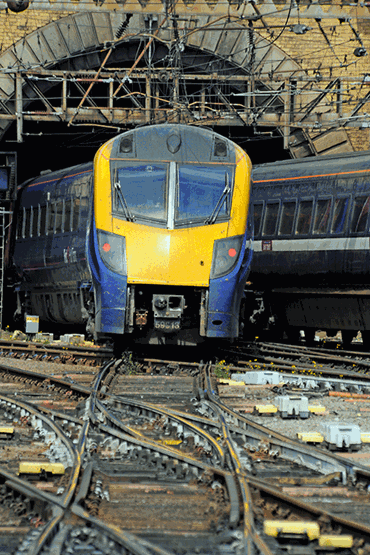 Read the peer reviews for this article
Read the peer reviews for this article
Why is the rail industry regulated? Why are some parts of the industry regulated and other parts not? Why is the Office of Rail and Road’s railway role different from its role with highways? What will the future of regulation look like? And indeed, why does rail need a regulator at all?
Not all industries have regulators. And where regulators do exist, their powers, scope and function are variable. Prior to privatisation the UK rail industry did not have a regulator, so could we do without one today? That may depend upon what a regulator is for.
Advanced democratic countries worldwide appoint regulators to intervene in certain industries and markets. The Organisation for Economic Co-operation and Development’s Recommendation on Regulatory Policy and Governance goes some way to explaining why:
“Creating a regulatory agency independent from the government and from those it regulates can provide greater confidence that decisions are fair and impartial. This may be warranted when the decisions of the regulatory agency have significant financial and market consequences and are required to be arm’s length from the political process to reduce the regulatory risk of investments.”
The Principles for Economic Regulation published by the Department for Business, Innovation and Skills (BIS) in 2011 make a similar point about the potential for unregulated government policy to be inconsistent with the timescales of investment:
“…investors will price any risk of political intervention and demand higher returns for their investment or, in the most extreme cases, might even decline to invest. This is likely to be detrimental to consumers and to the economy in the long term…
“A solution to this time inconsistency is to design regulatory frameworks that prevent unexpected change to the rules of the game, thus offering a credible commitment to investors. In the UK the statutory framework of independent economic regulation encapsulates a commitment by the UK Government not to intervene other than in clearly specified ways.”
This approach justifies an economic regulator so private sector investors can be confident that governments will not ‘change the rules’ on their investment after they have made it. It is relevant where there is a mix between government and private involvement and investment in a political or public service. This is a matter perhaps illustrated by recent debate about open access on the East Coast Main Line, and the interaction between the roles of government and ORR in deciding on the grant of such access.
Other justifications for an economic regulator tend to focus on the benefits of competition in an otherwise non-competitive market. In 1992, ahead of privatisation, the Government’s New Opportunities for the Railways noted: “The Regulator will have a central role in establishing, encouraging and maintaining a competitive railway in which the interests of passengers and freight customers, as well as those of operators, existing and new, are protected.”
The BIS view on the importance of economic regulation by bodies such as ORR also extends expressly to the benefit of regulation for competition, and thereby for consumers: “In certain sectors network effects and/or economies of scale create circumstances, such as natural monopolies, which, under current technological patterns, limit the prospects for effective competition. In these areas, independent economic regulation will be needed over the long term to continue to provide vital consumer protections and ensure consumers’ interests are promoted through efficient provision of good quality, reliable and sustainable services.”
BIS also states: “The aim of economic regulation is to create a system of incentives and penalties that aim to replicate the outcomes of competition in terms of consumer prices, quality and investment and puts the protection of consumers’ interests at its heart.”
The European Commission (DG Move) states: “The main task of the Regulatory Body is to ensure a fair and non-discriminatory access to the rail network and services.”
Overall, therefore, the reason the rail industry has an economic regulator probably has a number of strands, including:
- To provide confidence in a consistent approach for investment.
- To promote or police behaviours that would be expected in a competitive market in an industry structure which otherwise would not behave in that way.
- To produce outcomes with the consumers’ interests at heart.
We have such independent regulation because of the balance in the rail industry between public sector involvement and private sector involvement, and because parts of the market are natural monopolies which might not otherwise function efficiently.
It is this characteristic of the railways that perhaps explains the difference between ORR’s railways role and its highways role. Essentially, the assets of Highways England remain exclusively in the public sector and are (largely) provided for the public good (and, in economics terms, as a public good), so there is little balance between public and private investment for which a strong independent regulator is required.
From the point of view of economic regulation, these underlying purposes will necessarily be part of the justification for the future of rail regulation.











